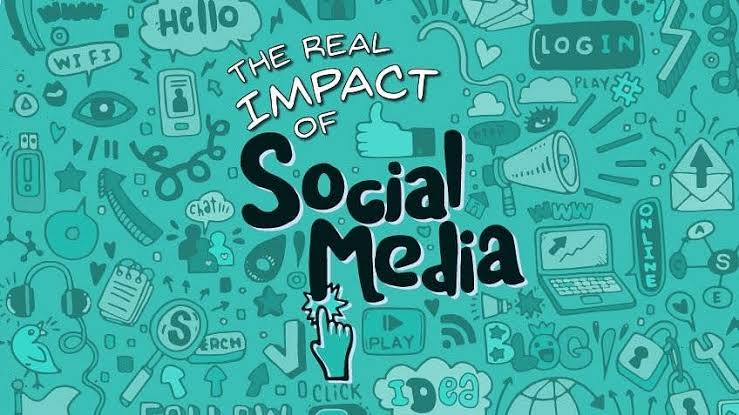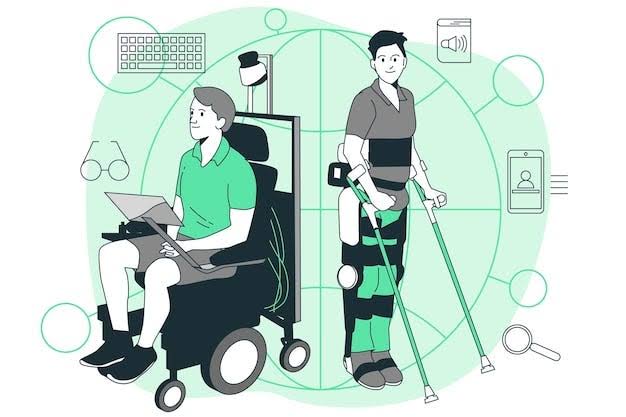Social media has become an inseparable part of daily life for billions of people across the globe. As of July 2025, platforms like TikTok, Instagram, YouTube, X (formerly Twitter), and newer emerging apps are shaping communication, entertainment, business, and even politics. This digital revolution has transformed the way individuals interact, form opinions, build communities, and access information. While social media offers numerous benefits, it also presents complex social, psychological, and ethical implications.
Its rapid evolution over the past decade has not only altered how people communicate but has redefined the structure of society itself. In both positive and negative ways, it affects everything from mental health and education to global activism and misinformation.
Changing How People Communicate and Connect
One of the most obvious impacts of social media is how it has revolutionized communication. People no longer need to be in the same city—or even the same country—to stay connected. Through messages, comments, live streams, and stories, users can maintain relationships, share experiences, and discover common interests with others across borders.
Social media has especially played a vital role in connecting marginalized communities and providing a voice to those who might not have had access to traditional platforms. Movements like #MeToo, #BlackLivesMatter, and climate change activism gained momentum largely because of their viral spread online.
However, the nature of online communication has also contributed to superficial interactions. Quick likes, emojis, or reposts can replace meaningful dialogue, and social bonds are sometimes reduced to virtual acknowledgment rather than real emotional connection.
Influence on Mental Health and Self-Perception
The psychological impact of social media cannot be ignored. Many users, especially teens and young adults, are influenced by the curated lifestyles and edited images they see on platforms. This can lead to unrealistic standards of beauty, success, and happiness, resulting in anxiety, low self-esteem, and depression.
The constant need for validation—seen in likes, shares, and comments—can create a feedback loop that reinforces insecurity. For some, time spent on social media becomes a comparison trap, where self-worth is measured by digital approval.
On the other hand, mental health awareness campaigns on social media have helped reduce stigma and provided access to resources and support groups. Hashtags like #MentalHealthAwareness and creators focusing on mindfulness and wellness have created virtual safe spaces for open dialogue and healing.
Social Media and Information Consumption
Social media has replaced traditional media as the main source of news for many users, especially younger generations. Platforms provide instant updates, breaking news, and access to diverse opinions. However, this democratization of information comes with significant risks.
Misinformation and fake news spread rapidly through algorithm-driven feeds that prioritize engagement over accuracy. False narratives can influence elections, incite panic, or promote harmful health advice. Even worse, echo chambers—where users only encounter content that aligns with their beliefs—can lead to polarization and extremism.
Despite these challenges, social media has also played a key role in exposing corruption, injustice, and misinformation. Citizen journalism and whistleblowing have thrived online, giving ordinary people the tools to hold institutions accountable.
Economic and Business Transformation
Social media has reshaped the economy by creating new forms of employment and entrepreneurship. Influencers, content creators, and digital marketers now form a booming sector known as the creator economy. Brands rely on social media not just for advertising, but for building relationships with customers and driving sales.
Small businesses benefit from the accessibility of platforms like Instagram Shops, Facebook Marketplace, and TikTok Shop. Entrepreneurs can reach global audiences without needing traditional brick-and-mortar stores or large marketing budgets.
Still, this digital marketplace also increases competition and shifts the burden of visibility onto creators, who must constantly adapt to algorithms and trends to remain relevant. It’s a double-edged sword—empowering but demanding.
Political and Cultural Influence
Social media plays a significant role in shaping political discourse and cultural narratives. Politicians use platforms to speak directly to citizens, while campaigns rely on digital strategies to mobilize voters. Social media has been instrumental in organizing protests, sharing uncensored footage, and raising awareness of global crises.
However, this influence can also be manipulated. Political propaganda, bots, and targeted misinformation campaigns have been used to influence public opinion and destabilize democratic processes. In response, many countries have introduced or updated legislation to regulate digital platforms and prevent abuse.
Culturally, social media fosters global exchange. Trends, humor, music, and fashion transcend borders almost instantly. This cultural fusion enriches societies but also raises concerns about digital colonization, cultural appropriation, and the loss of local voices in global conversations.
The Rise of Digital Addiction and Screen Time Concerns
Excessive use of social media has led to concerns about digital addiction. Scrolling through endless feeds can consume hours daily, often reducing productivity, interrupting sleep, and even impairing relationships. Notifications and app designs are deliberately engineered to trigger dopamine responses, keeping users hooked.
To combat this, many users have started adopting digital wellness habits, including screen time monitoring, app usage limits, and social media detox periods. Platforms themselves have introduced features like “quiet mode” or time tracking, though their effectiveness remains debated.
Educational Opportunities and Challenges
Social media provides a platform for informal education, allowing users to learn from videos, tutorials, expert threads, and digital communities. Educators and institutions have used platforms like YouTube, LinkedIn, and even TikTok to reach students in new ways.
However, there’s also the issue of distraction and decreased attention span. The fast-paced, entertainment-driven nature of most content can make it difficult for users—especially young learners—to focus on deeper learning or maintain academic discipline.
Balancing Benefits and Risks
Like most technologies, the value of social media lies in how it’s used. While it offers unmatched connectivity, creativity, and opportunity, it also poses real threats to mental well-being, democratic stability, and social cohesion.
To maintain a healthy balance, users, platforms, and policymakers must work together. Media literacy education is essential to help users recognize misinformation, understand algorithms, and navigate digital spaces responsibly. Tech companies need to prioritize user safety and ethical design, while governments must ensure that regulation doesn’t infringe on free speech.
Conclusion
Social media has permanently altered the landscape of modern life. It amplifies voices, builds communities, creates jobs, and facilitates rapid information exchange. But it also introduces challenges that affect our mental health, social behavior, and global politics. The key moving forward lies in promoting conscious, informed use of social media—where its potential can be harnessed for good without falling into its many pitfalls. As society continues to evolve digitally, so must our understanding and regulation of the tools that shape it.




A conscious use of social media should be promoted